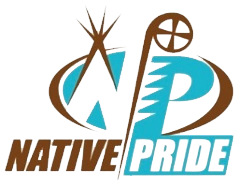Abstract
Native American youth are placed at greater risk for suicide than any other age or ethnic population in the United States. Resilience has helped Native Americans overcome adversity. In this paper, the authors provide an example of how intergenerational mentoring can moderate or reduce these risk factors. The Intergenerational Connection Project at Native PRIDE (ICP) works with advisory councils in four Native communities in Montana and South Dakota. To better understand resilience, this paper answers two questions: (1) how do communities define cultural resilience, and (2) how can cultural resilience be operationalized in a cultural context? The ICP team worked with community advisory councils to develop a cultural resilience scale that was administered at the beginning of the project and six months later, at the end of the Project. An independent samples t-test demonstrated a significant increase in all scale items from baseline and at six-month follow-up. Results indicate that all community definitions include terms related to adversity and the transfer of cultural knowledge through sharing, participation, and involvement. Community definitions also included conversations about spirituality, language, values, and interactions between elders and youth. The authors conclude with a strong message that strengths-based interventions like the ICP are needed to address suicide risk in Native communities.


